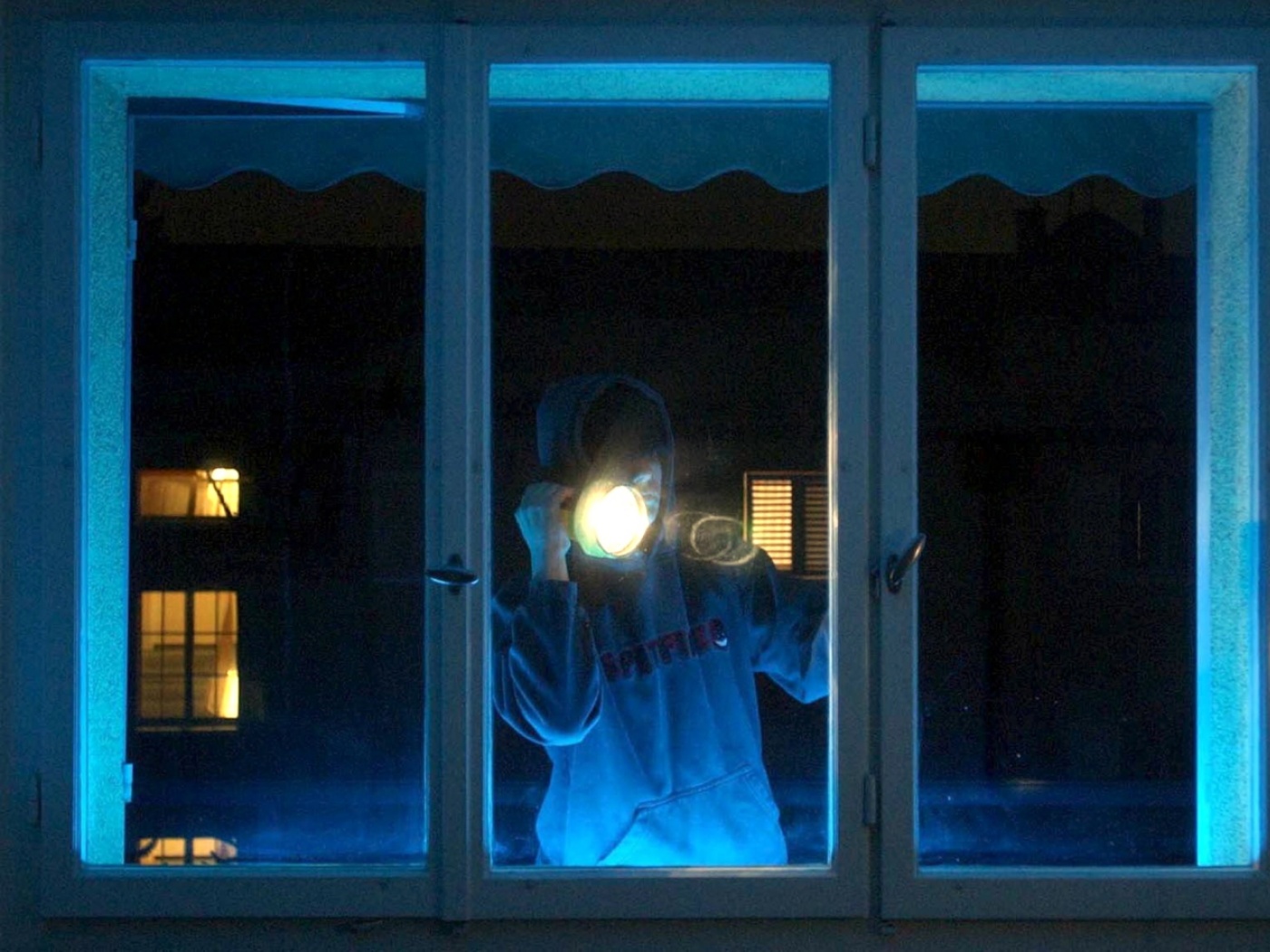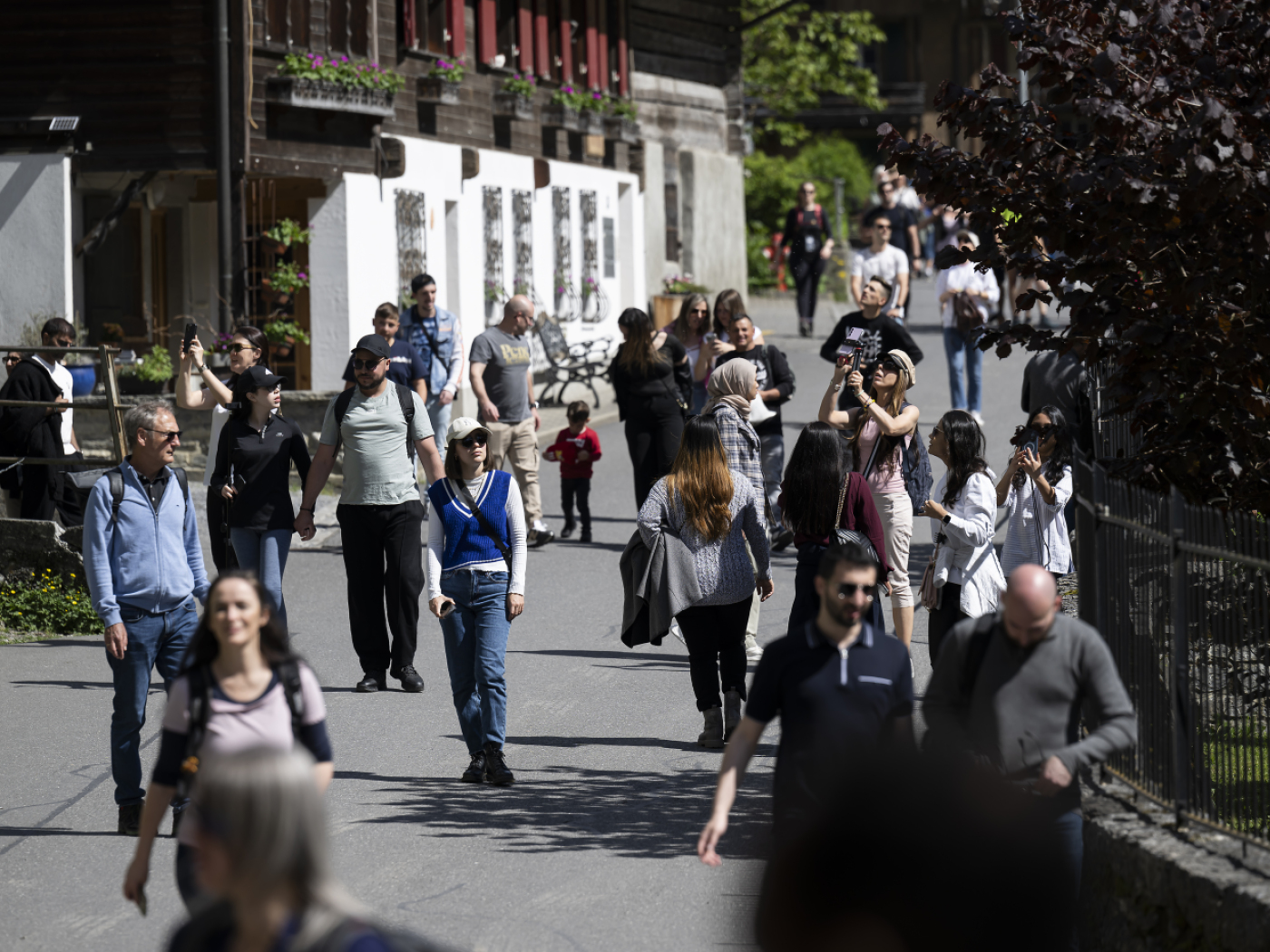
Report: French-speaking Switzerland is worst hit by home burglaries

December is the most popular month for burglaries in Switzerland, and French-speaking cantons Geneva, Vaud, Basel City and County and Jura are the worst affected, a report shows. After a long period of decline, the number of cases has returned to pre-Covid levels.
+ Get the most important news from Switzerland in your inbox
“Thieves are most active between October and December, with a peak at Christmas and New Year’s Eve,” Axa Switzerland said on Monday. It has carried out an analysis of burglaries in the Alpine nation looking at the past ten years.
Between October to March, the insurer notes a 45% increase in burglaries compared with spring and summer. “Night falls earlier, which seems to play into the hands of burglars,” said the insurer.
Burglars are most active in December, ahead of November and October. On 24 and 31 December, Axa observes a doubling in the number of burglaries compared with ordinary days. “During the festive season, when many people are away on holiday or visiting friends and family, burglars have a field day,” they state. Conversely, the slow period for burglaries is between April and June.
Since 2019, the risk of being targeted by burglars in canton Geneva has been almost three times higher than the national average. The canton records an average of 8.5 burglaries per 1,000 households per year.
+ Burglaries in Switzerland rise for first time in ten years
Cantons Vaud (5.4), Basel City , Basel Country, Jura (4.1), Neuchâtel (3.6) – all border cantons – and Solothurn are also more affected than average.
In central and south-eastern Switzerland, on the other hand, the risk is minimal: between 2019 and 2024, there were 0.9, 1 and 1.1 burglaries per 1,000 households per year in cantons Uri, Graubünden and Glarus respectively. The Swiss average is 3.2.
Organised gangs
After falling in 2020 and 2021 as a result of the Covid pandemic, the number of burglaries rose by 10% last year compared with 2023. The insurer has no explanation for this jump. The total number of burglaries has returned to its 2019 level, but remains below that of 2015 to 2018.

More
Police arrest 20 thieves and pickpockets in Swiss tourism hotspots
The trend in the cost of claims is even clearer. Last year, Axa paid out almost CHF21 million for burglaries. The average per claim exceeded CHF7,000, almost a quarter more than two years ago. The insurer recorded a sharp rise in major claims, with costs in excess of CHF30,000.
“This is indicative of organised structures. We can confirm that burglaries committed by professionals, and therefore organised crime, have increased significantly,” it adds.
For burglaries costing less than CHF30,000, the average damage has risen by 9% over the past two years. “This is probably due to the fact that many people have increasingly expensive valuables, such as smartphones, laptops and electric bicycles,” it says.
Prevention
The insurer points out that break-ins, where thieves enter without violence through an unlocked door or a half-open window, can be prevented by taking a few simple precautions. “As soon as you go away, no matter for how long, always lock your front door and make sure that all windows are closed, even at night,” it says. In addition, “vigilant neighbours are an essential part of the prevention scheme.”
Translated from French by DeepL/sb
We select the most relevant news for an international audience and use automatic translation tools to translate them into English. A journalist then reviews the translation for clarity and accuracy before publication.
Providing you with automatically translated news gives us the time to write more in-depth articles. The news stories we select have been written and carefully fact-checked by an external editorial team from news agencies such as Bloomberg or Keystone.
If you have any questions about how we work, write to us at english@swissinfo.ch

In compliance with the JTI standards
More: SWI swissinfo.ch certified by the Journalism Trust Initiative


























You can find an overview of ongoing debates with our journalists here . Please join us!
If you want to start a conversation about a topic raised in this article or want to report factual errors, email us at english@swissinfo.ch.